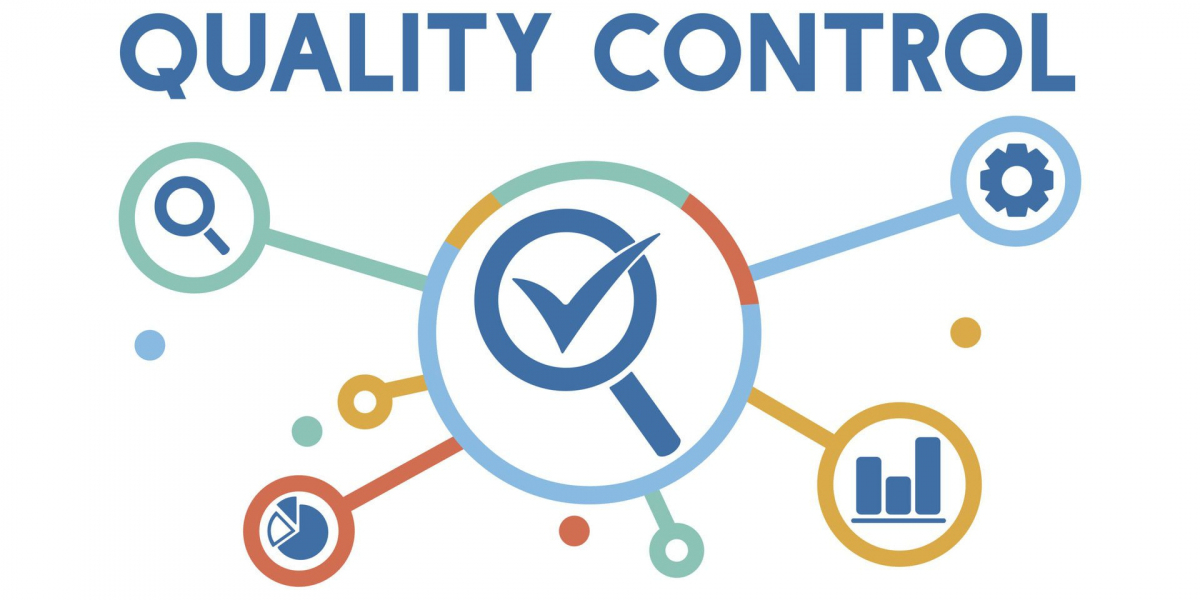In today’s fast-paced business landscape, maintaining high quality standards is crucial to gaining customer trust, ensuring regulatory compliance, and sustaining growth. A Quality Management System (QMS) plays a pivotal role in streamlining processes, improving product quality, and fostering a culture of continuous improvement. As organizations face ever-evolving market demands, staying current with the latest trends, technologies, and industry requirements in QMS becomes essential. This article explores the most recent trends shaping QMS, industry requirements, and how businesses can future-proof their quality management practices.
The Core of a Quality Management System
A QMS encompasses all the processes, policies, and procedures a business uses to ensure that products or services meet or exceed customer expectations. These systems often follow recognized frameworks like ISO 9001, which outlines the standard for QMS. Organizations implement these systems to document, monitor, and continuously improve their operations, ultimately leading to higher quality outputs and increased efficiency.
Get Started in Minutes — No Coding Required!
https://axonator.com/request-for-demo/
Latest Trends in Quality Management Systems
The world of QMS is rapidly evolving, driven by advancements in technology, changing consumer expectations, and global supply chains. Here are some of the latest trends that are reshaping how businesses approach quality management:
1. Digital Transformation of QMS
The ongoing digital revolution is transforming traditional QMS into more agile, efficient, and data-driven systems. Organizations are increasingly adopting cloud-based QMS solutions, which allow for seamless integration, real-time monitoring, and accessibility across global operations. These systems provide businesses with centralized control over quality processes, reducing manual tasks, and enabling real-time data analytics.
Technologies like Artificial Intelligence (AI) and Machine Learning (ML) are also being integrated into QMS platforms. AI-driven analytics can predict quality issues, analyze trends, and identify process inefficiencies before they become significant problems. In industries like manufacturing, AI-powered tools can help optimize production processes by analyzing vast amounts of data in real-time to ensure higher quality outcomes.
2. Focus on Risk-Based Thinking
ISO 9001:2015 introduced the concept of risk-based thinking, encouraging organizations to proactively identify and manage risks across their operations. As industries become more complex, risk management has become a core part of quality management. Companies are now emphasizing the need for risk assessment at every stage of production, from product design to delivery.
Risk-based thinking extends beyond just avoiding product defects; it involves anticipating disruptions in the supply chain, ensuring regulatory compliance, and safeguarding customer satisfaction. This shift helps organizations stay agile in an unpredictable business environment.
3. Customer-Centric Quality Management
Customer expectations continue to rise, driven by increasing access to information and the ability to share reviews and feedback in real-time. As a result, businesses are adopting more customer-centric QMS strategies. Modern quality management systems now focus on gathering feedback directly from customers, incorporating that data into product or service improvements.
This trend has given rise to the use of tools like Net Promoter Scores (NPS) and Customer Satisfaction Surveys, which help companies understand how their quality initiatives are perceived by end users. By putting customers at the heart of quality management, businesses can ensure that their products align with market demands, driving brand loyalty and competitive advantage.
4. Sustainability and Ethical Sourcing
As sustainability becomes a global imperative, businesses are now integrating sustainable practices into their QMS. Many organizations are establishing green supply chains and focusing on ethical sourcing to ensure that their products meet both quality and environmental standards.
Quality management now extends to monitoring the environmental impact of production processes, resource consumption, and waste management. Companies must adhere to environmental regulations and sustainability certifications, such as ISO 14001, which provides guidelines for environmental management systems.
5. Compliance with Industry-Specific Standards
Different industries have their own quality standards and regulatory requirements. For example, ISO 13485 governs quality management for medical devices, while AS9100 is a standard for the aerospace industry. In the food and beverage sector, HACCP (Hazard Analysis and Critical Control Points) ensures product safety.
These industry-specific standards continue to evolve, and companies must keep pace with the latest updates to maintain compliance. Regulatory agencies are placing greater emphasis on ensuring that products meet safety, environmental, and quality standards, requiring organizations to stay vigilant about adherence.
Learn More | https://axonator.com/product/quality-management-system/
Industry Requirements for QMS
As QMS continues to evolve, organizations across various sectors must adapt to meet industry-specific requirements and global quality standards. Here are some key factors businesses should consider:
1. ISO Certification
ISO certifications, especially ISO 9001, remain a gold standard for quality management. While not always mandatory, achieving ISO certification demonstrates a commitment to excellence and can open doors to new markets, improve customer confidence, and streamline operations. Many industries require ISO certification as a prerequisite for partnerships and tenders.
2. Regulatory Compliance
Regulatory bodies worldwide are tightening their quality management standards. For instance, the European Union’s General Data Protection Regulation (GDPR) has far-reaching implications on data handling, which ties into the QMS for sectors that manage large amounts of personal data, such as healthcare and finance.
Organizations must stay current with industry regulations, ensuring that their QMS is updated regularly to avoid non-compliance fines and reputation damage.
3. Supplier Quality Management
Global supply chains can be complex, and ensuring the quality of raw materials or components sourced from external suppliers is crucial. Businesses are investing in Supplier Quality Management (SQM) systems to ensure that third-party vendors meet the required quality standards. This includes conducting audits, setting performance benchmarks, and building long-term partnerships with suppliers who align with the company’s quality objectives.
4. Continuous Improvement and Lean Practices
Many industries, such as manufacturing and healthcare, emphasize Lean and Six Sigma methodologies as part of their QMS strategy. These approaches aim to reduce waste, optimize processes, and promote continuous improvement. A robust QMS incorporates tools like Kaizen (continuous improvement) to create a culture of accountability and innovation within the organization.
Future Outlook: What Lies Ahead for QMS?
The future of quality management is marked by ongoing technological advancements, increased regulatory scrutiny, and growing consumer expectations. Businesses that want to stay competitive must embrace digital transformation, prioritize customer-centric strategies, and integrate sustainability into their QMS practices.
In the coming years, we can expect even greater integration of AI, IoT, and data analytics into QMS platforms. Predictive analytics will become a cornerstone of quality management, allowing organizations to foresee potential issues and implement corrective actions in real-time. Moreover, as supply chains become more global, there will be a stronger emphasis on maintaining quality across borders, requiring more sophisticated supplier quality management systems.
About Axonator Inc:
At Axonator, Our vision is simple yet powerful: to enable the world on mobile. We envision a future where every aspect of business and society is seamlessly connected through mobile devices. Our mission is to empower businesses worldwide to leverage the full potential of mobile technology, transforming the way they operate, communicate, and collaborate.
Contact:
Axonator Inc (The World On Mobile)
Austin, TX, USA
USA: +1–716–274–8885
India: +91–8600–032–635
Email: support@axonator.com
Website: https://axonator.com/









